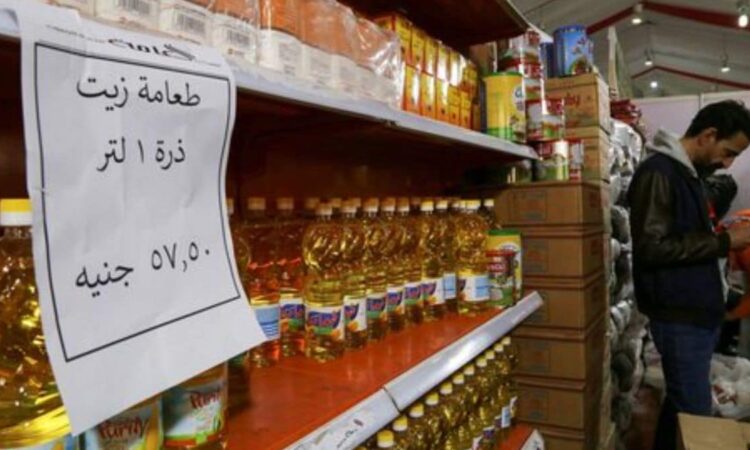EU pledges €7.4 billion to help Egypt’s economy amid high inflation & foreign currency crisis – Firstpost

Oil bottles are displayed at a market selling food at discounted prices, after a devaluation of the Egyptian pound led to a sharp increase in prices, in Giza, Egypt, January 28, 2023. File Photo- Reuters
Egypt and the European Union inaugurated an important two-day investment conference on Saturday aimed at bolstering their strategic partnership, which includes a substantial 7.4 billion-euro ($8 billion) aid package for Egypt to tackle inflation and foreign debt crisis.
The aid package comprises a combination of grants and loans to be disbursed over the next three years. A significant portion of this financial support, totaling 5 billion euros ($5.4 billion), is allocated as macro-financial assistance. This funding is intended to stabilise Egypt’s beleaguered economy, which is currently suffering from an acute shortage of foreign currency reserves.
In his opening remarks, President Abdel Fattah el-Sissi said the conference “sends a powerful message of confidence and support from the European Union for the Egyptian economy and the economic reform measures implemented over the past 10 years.”
Egypt’s annual urban consumer price inflation in May fell to 28.1% from 32.5% in April this year, slowing faster than analysts had expected, data from statistics agency CAPMAS showed on Monday.
Inflation was expected to fall to 30.4%, a median forecast from a poll of 19 analysts showed, continuing a slowing trend since a September peak of 38.0%. Food prices in May were 31.0% higher than in May 2023.
Egypt’s core inflation, which excludes fuel and some volatile food items, eased to 27.1% year on year in May from 31.8% in April, central bank data showed earlier this month.
The EU, represented by Executive Vice-President Valdis Dombrovskis, and Egypt will sign a memorandum of understanding for the short-term macro-financial assistance of up to €1 billion ($1.07 billion) to support Egypt’s economic reform program, the EU mission in Cairo said.
Other investment deals are scheduled to be signed with European companies as well as bilateral cooperation agreements with the EU to advance employment and skills, vaccines manufacturing, food security and sustainable development, it said.
“In just 100 days, we have already brought new energy into our partnership. And this is just the beginning,” European Commission President Ursula von der Leyen, who attended the conference, said.
El-Sissi’ government embarked on a massive reform program in 2016 in return for loans from the International Monetary Fund. The reform has centered on floating the local currency, substantial cuts in state subsidies on basic goods, reducing public investment and allowing the private sector to become the engine of growth.
Most recently, the government once again floated the pound and sharply increased the main interest rate in March. Commercial banks are now trading the U.S. currency at more than 47 pounds, up from about 31 pounds.
The measures are meant to combat ballooning inflation and attract foreign investment. They were also needed to meet IMF demands in order to increase its bailout loan from $3 billion to $8 billion.
The currency devaluation and subsidies cuts have inflicted further pain on Egyptians already struggling with skyrocketing prices over the past years. Nearly 30% of Egyptians live in poverty, according to official figures.
The EU deal, which has drawn criticism from rights groups over Egypt’s human rights record, came as concerns grow that economic pressure on Egypt and conflicts in neighboring countries could drive more migrants to European shores.
Find us on YouTube






